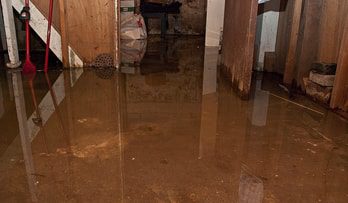Interior Waterproofing

Molds and mildew can grow in damp carpets and beneath wall coverings. Finishing a basement without first dealing with the moisture problems can result in making health conditions worse and lead to significant damage as well. A sealed interior basement waterproofing system, installed by a professional waterproofing contractor, can keep the moisture and soil gases from circulating throughout your home.
Types of Interior Drainage Systems for Florida Homes
Below the Slab
The most effective of the interior drainage systems is a perforated drain pipe installed inside the perimeter of the footing. Not only are these the most popular systems, but they are also building code approved when installed and sealed correctly. This requires removing and replacing concrete around the slab edge. By placing the drain pipe beneath the slab, it drains the area to a lower level.
Similar to an exterior system, this drainage pipe connects to a sump pump system. The sump basin should have a sealed, airtight, childproof cover. A critical component of this approach is the dimpled plastic sheeting placed at the base of the wall and beneath the slab edge. Dimpled sheeting is similar to a small egg crate and permits free drainage at the base of the wall into the drain pipe. It is less expensive than many specialized drainage channel systems. This sealed system will remove rising groundwater if there is an aggregate layer under the slab.
On Top of Footings
The simplest and least costly approach to interior drainage is a drain channel adhered at the base of the wall, on top of the footing. Water is collected and drained into a sump basin. The sump pit should have an airtight, childproof cover. These types of systems do not solve the problem in masonry walls because water remains in the block cores at floor level and the water level is only lowered to the top of the slab. With this approach, the water is not completely removed from the space. The result is that humidity, mold, radon, and mildew can still be a problem. This system also cannot drain groundwater from under the floor slab, you need a sealed below slab drainage system.
Foundation Pros of Florida serves the cities of Tallahassee, Lake City and Jacksonville, FL and the surrounding areas for exterior or interior basement waterproofing.

